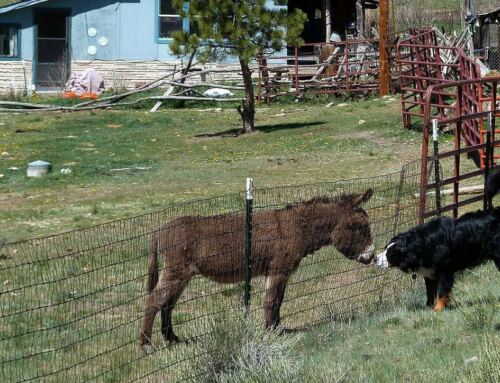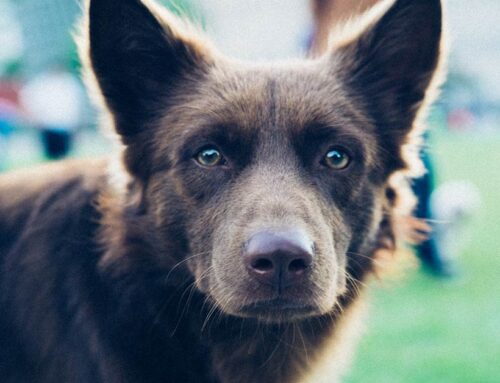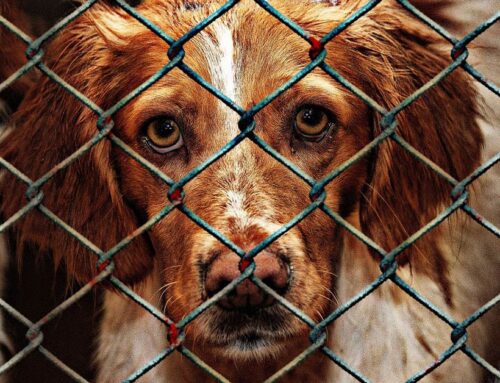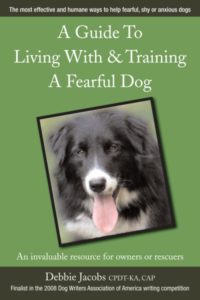 This morning my mother was having her breakfast and on the TV was an early morning cooking show. She remarked, “I don’t know why I watch these shows, I don’t even like to cook.”
This morning my mother was having her breakfast and on the TV was an early morning cooking show. She remarked, “I don’t know why I watch these shows, I don’t even like to cook.”
Food is a primary reinforcer. Looking at it feels good, thinking about it feels good. Mmmm..hand churned ice cream with fresh peaches, sweet corn on the grill, garden fresh salsa with just picked cilantro. That’s why you keep watching, mum.
In the world of dog training food is still being given a bad rap by some. The misuse of food as a bribe is often cited as reason to avoid using it. The argument that dogs become dependent on food would almost be funny if folks weren’t serious when they made it. I have yet to sort out how to break my dogs’ dependency on eating.
Different dog trainer camps each have their own set of premises as to why they prefer not to use food in training. And ironically enough on the spectrum of trainers understanding how behavior works (from haven’t a clue to enough understanding to make stuff up and sound like they know what they’re talking about), and developing a method or style, both the dominance and force-free advocates have adopted other supposedly more natural alternatives.
Years ago I ran into a neighbor who had purchased two chocolate lab sister pups. I asked if she was planning on breeding them. “No,” she answered. How about spaying them? “No,” again. “Why not?” I queried. “Because it’s not natural,” she claimed. Had I been drinking coffee there’s a good chance it would have come out of my nose. Natural!? As IF there is anything natural about a chocolate lab (no offense to them or any other breed of dog). The pressures of artificial selection have created very different animals than the pressures natural selection would have created.
This hasn’t stopped trainers from jumping on board the it’s natural bandwagon (I have yet to understand how food has been relegated unnatural, and am not going to spend much time on trying). There are the trainers who seem to be taking their lead from dogs from another planet, those mother dogs who use bites to the neck and muzzle holds to teach their puppies how to walk more slowly on leash, come when called, or poop outside and not in the house (that those mums start out by eating their puppies’ poop is natural enough but few recommend owners go that route). And the trainers who extoll natural, organic, functional rewards (other than food) for training behaviors such as stop running away from me and turn and come to me, or stay in a crate for hours, a behavior which I daresay might be as unnatural as it gets as far as a dog is concerned. Some leap of logic has been made that even though we are going to train behaviors that go against what is likely very much in a dog’s nature; chase stuff, chew stuff, eat stuff, shred stuff, guard stuff, pee on stuff, we are obliged to do so by someone’s random definition of what constitutes natural.
Most troubling are the trainers who just flat out do not understand how counterconditioning works and avoid using food to create positive associations with triggers. Or fail to see how the use of food in operant conditioning can impact the dog’s emotional response to where the food is being given, what’s around, and probably most importantly the handler who’s supplying it, right along with performing the behavior itself. Those who assert that the dog’s good feelings when food is used only applies to the food, and not the handler providing it, are identifying themselves as lacking an understanding in classical conditioning, and it’s value to us.
Before anyone feels the need to comment and remind me that there are other things besides food that dogs can find positively reinforcing and motivating, I get it. I’m not arguing against the use of whatever a dog finds positively reinforcing in training, but those dogs who needed help yesterday and those dogs today who remain wary and fearful or are facing being returned to a rescue or shelter, or euthanized because they didn’t get the memo that they should be able to be trained or counter conditioned without the use of food, are the victims of the very bad advice to avoid using or minimize the use of food in training.





